


























Helen Jeys, Head of Manchester High School for Girls explains the far-reaching value and benefits of an independent-school education
Choosing a school for your child is one of the most important decisions you can make. A er all, your child will be at school for a good proportion of the day (if they go to a day school) and for weeks at a time (if they board). More importantly, the school will help frame your child’s future; their passions – both academic and extracurricular – and will be a huge contributory factor in the development of their character, their views, principles and attitudes. So, it’s important to make a decision on a school that will enable your child to ourish.
Choosing an independent school for your child is a nancial investment, but is one – if you’re able to a ord it –that can pay huge dividends in terms of the person who will leave the school as an adult.


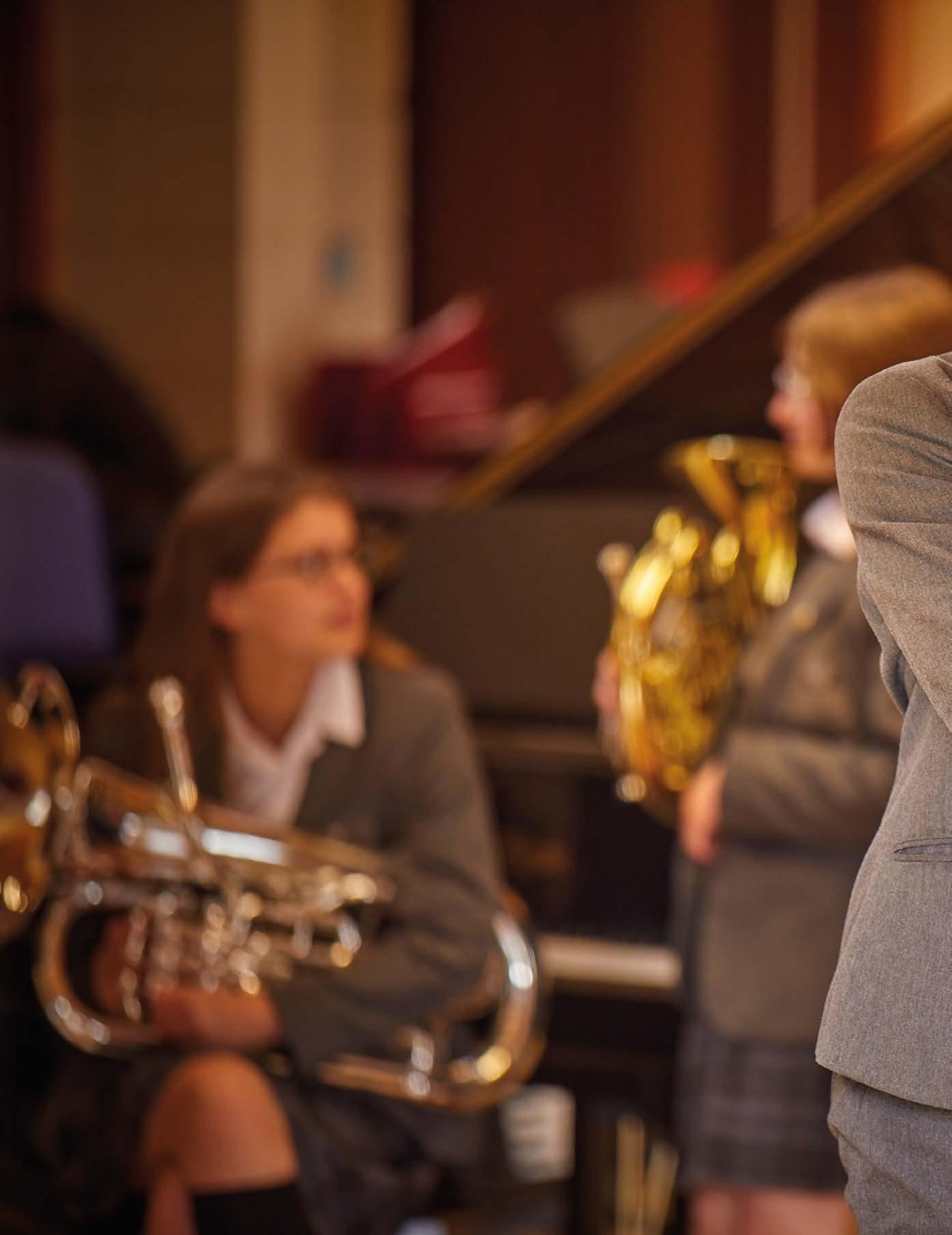
Whether the school is a single-sex school, like my own, or co-educational, independent schools enable pupils to achieve fantastic academic results. For me, this is a ‘given’ of investing in an independent school education. If your child is accepted into an independent school, the academic provision will, in the vast majority of cases, be delivered by outstanding specialists; teachers who are passionate about
Manchester High School for Girls has invested in a purpose-built music wing for timetabled lessons and extracurricular practice sessions

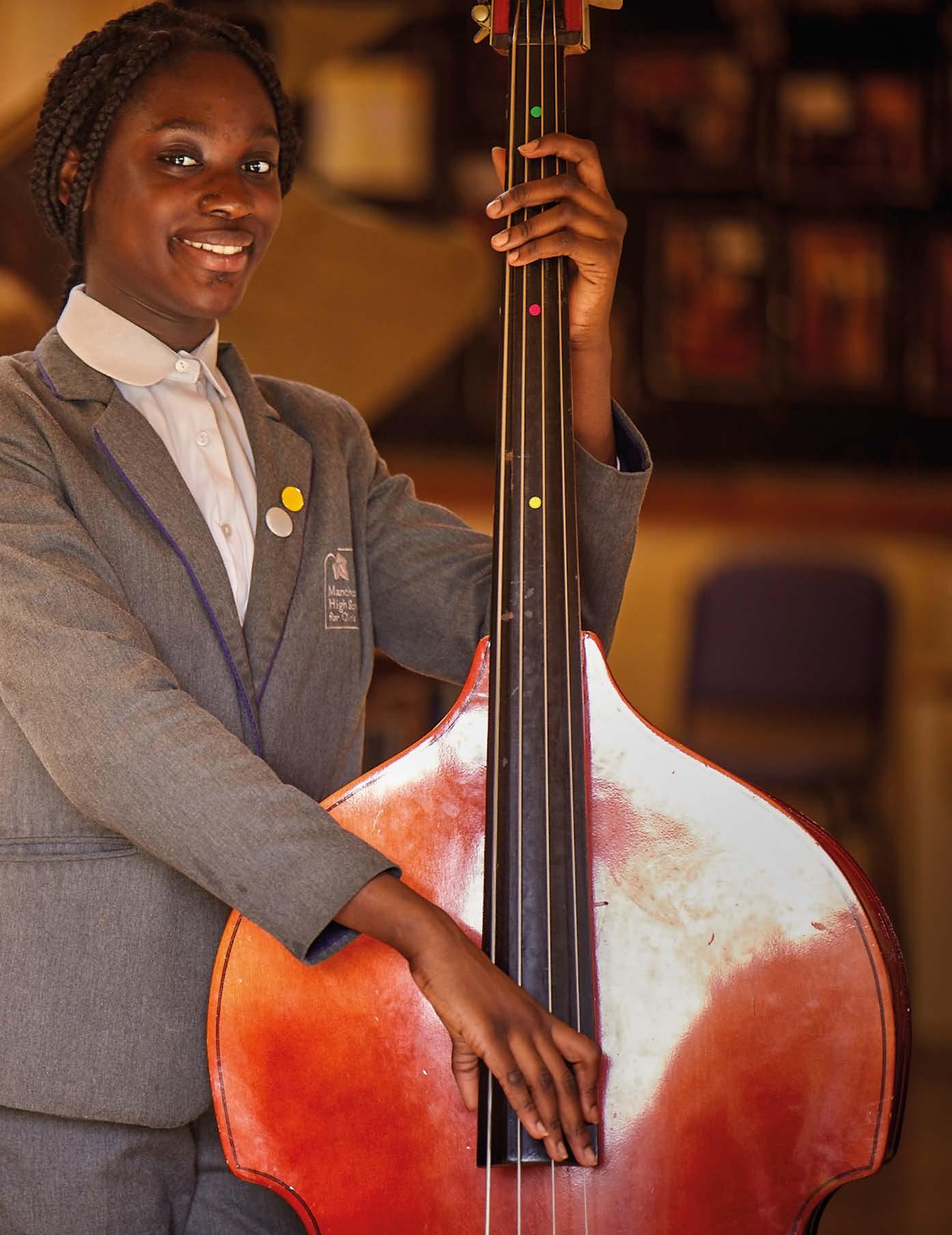


Dulwich Prep London is the largest boys’ prep in the country. Headteacher Louise Davidson explains why the school’s unique environment is central to the pupils’ all-round development


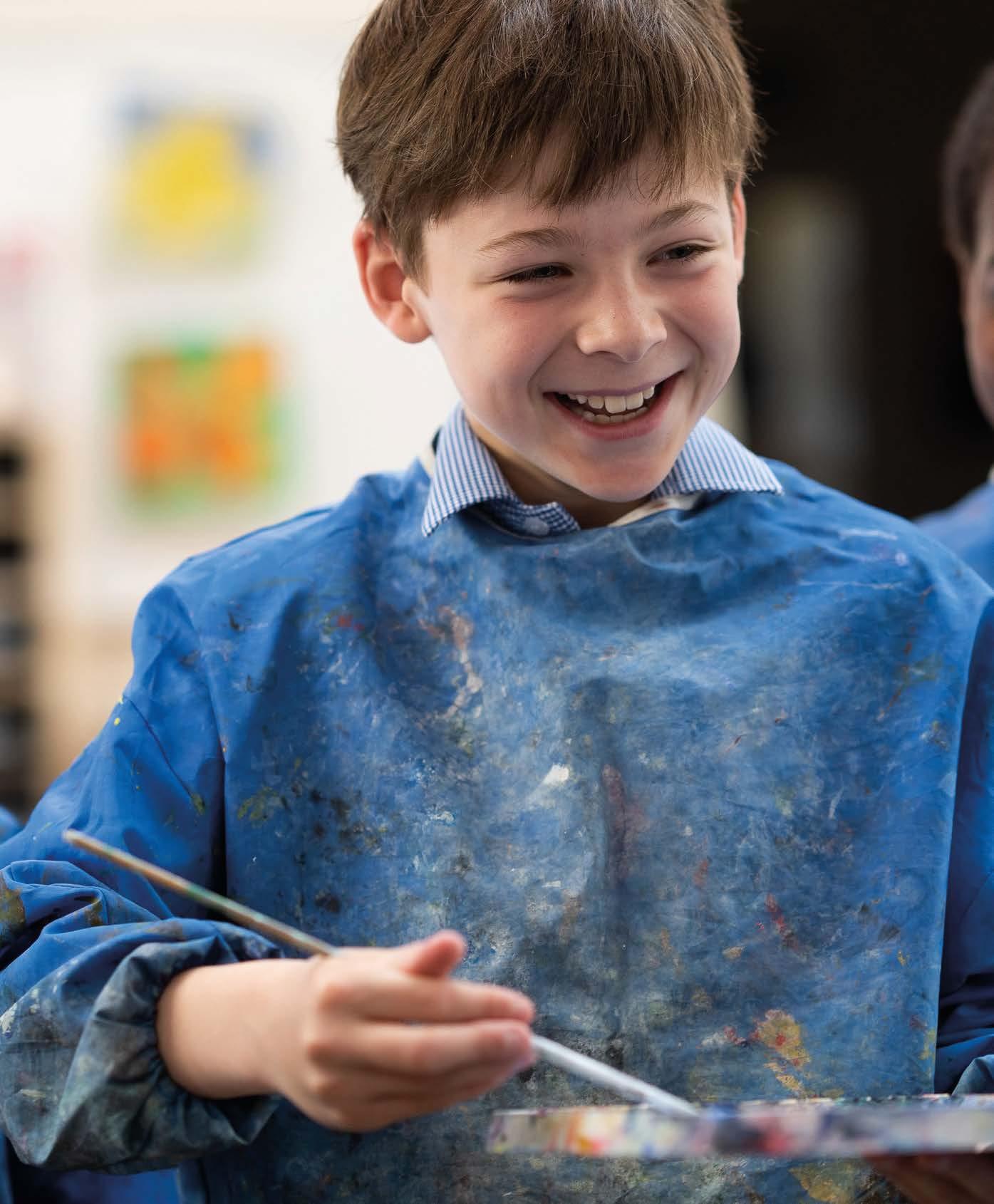
Dulwich Prep London is unashamedly a boys’ school, where you’ll nd every type of boy. Set within 29 acres – of which 25 are sports elds and woodland – our school o ers its pupils and families a unique juxtaposition of a country atmosphere in the suburbs of one of the most vibrant capital cities in the world.
Why ‘boys only’ in 2023? We’ve been providing an exceptional education for boys aged three to 13 for more than 135 years. We feel passionately that boys are extraordinarily successful in their pastoral and academic development within our setting, as boys develop a unique con dence in values and knowing themselves well. We are, we believe, the only boys’ school where love is a core value, and our boys are unafraid of talking about love in all its forms at any age. In an era that sits in the wake of the pandemic and ‘everyone’s invited’, our carefully considered pedagogy strives to ensure that the young men who leave us recognise their strengths and weaknesses, seek to be impassioned agents of equity and become role models of positive masculinity in a modern world.
Every type of boy has every type of opportunity in our school, whether it be singing to the ra ers of our beautiful concert hall, reading in our absorbing library, skateboarding in one of our many clubs, or collaborating with our local girls’ school on a public speaking opportunity. e breadth and depth of knowledge mastery we encourage optimises every boy’s potential; pupils and families achieve a 95 per cent success rate in obtaining their rst choice of senior school, of which we feed to an average of 45 per year. Over the last three years, Dulwich Prep London boys have achieved more than 200 scholarships. is only happens because we ensure that our sta team is of a consistently high standard and available to support our families on every step of their son’s journey.
Pastoral care is of the utmost importance to our sta team and community beyond. We recognise its signi cance in fostering each aspect of our pupils’ education. Boys can ▲
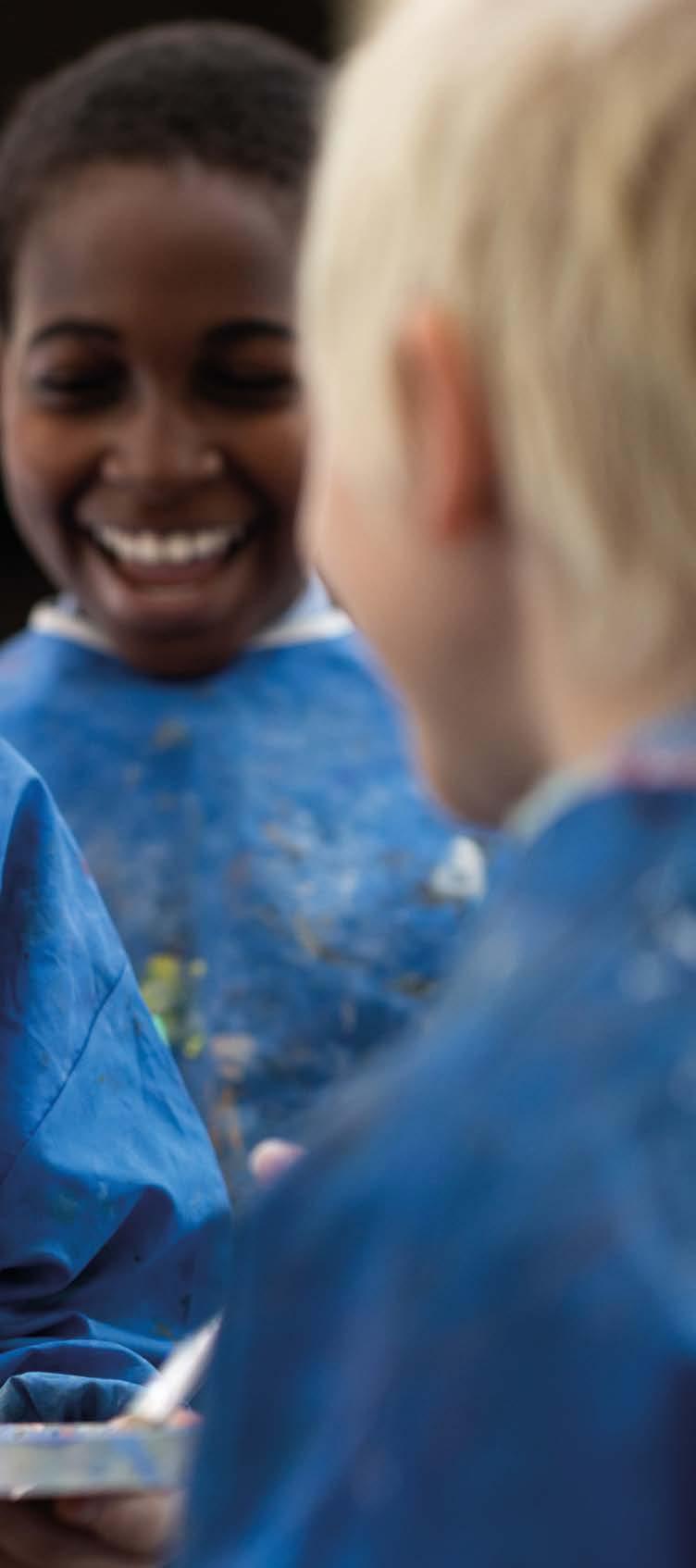
WE ARE, WE BELIEVE, THE ONLY BOYS’ SCHOOL where love is a core value, and our boys are unafraid OF TALKING ABOUT LOVE IN ALL ITS FORMS AT ANY AGE
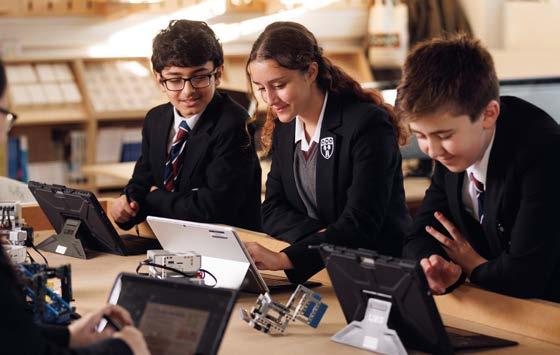
There are compelling reasons for tech-weary, post-lockdown parents to re-assess computer science and everything this innovative subject has to o er, and independent schools like ours are leading the way in this popular subject.
It’s not surprising that a quotation attributed to Marvel’s Spiderman forms the bedrock of departmental philosophy: ‘with great power comes great responsibility…’.
e school’s fastest-growing subject is an adventure: it deals with quests for solutions, active exploration through unfamiliar terrain, all within a stringent moral framework. Projects are chosen to take into consideration ethics and technological approaches to preserve and enhance the environment. Even the furniture in the department was designed and built in house using a local lumber yard,
Project-based work allows RGS students to solve real-world problems
lowering the carbon footprint of the rooms signi cantly. It’s a vibrant, playful, practical class space and ‘learning through play’ is the mantra used by our dedicated computer science teachers.

Computer Science is a curriculum subject at the RGS Newcastle. Starting in the junior school, teachers plan collaboratively and year six are taught by sta from the senior school to smooth their transition to the older years at year seven. Studies evolve through years seven, eight and nine, with each lesson beginning with problem-solving: from Japanese logic puzzles to programming conundrums. Departmental pedagogy is based on multiple years’ experience and takes an approach which is proving to be incredibly popular, prizing as it does personalised learning. Dynamic,
RGS is committed to redressing the STEM gender inbalance
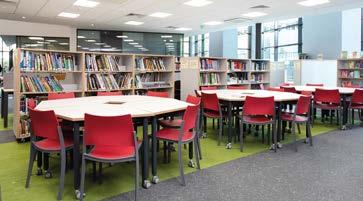
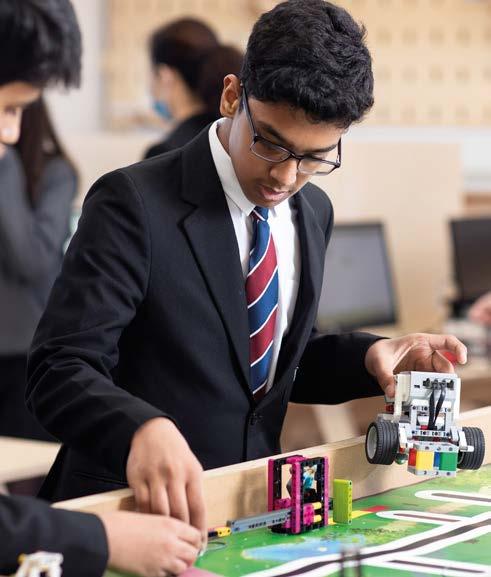
project-based work allows students to acquire knowledge using real-world subjects, working on a module for six weeks and creating an artefact in response to the project’s challenge. Examples of these include:
• ‘Can you make a pinball machine out of LEGO?’
• ‘Do you have the skills to secure a place at Bletchley Park?’

• ‘Can you create an interactive adventure game for the internet?’



• ‘How do you code art?’
Learning through discovery has students pose searching questions, using what they know alongside coaching from the teacher, rather than being spoonfed step-by-step instructions to nd solutions. e investigation becomes a personal journey and students are encouraged to represent their own interests in the nal
THE TECH INDUSTRY IS now bigger than the whole of the music and media INDUSTRIES COMBINED
artefact. e whole experience is enhanced through collaboration in pairs or teams: making mistakes and building resilience are part of a joint journey to re nement.
e next step for those wishing to extend their studies would be taking computer science as an option at GCSE and even A-level. Using mathematical skills to solve problems does mean that sixth form students tend to take other STEM subjects and have strong maths to support their investigations. Career opportunities are diverse and seemingly unlimited, with graduate careers up for grabs in creative game design (the tech industry is now bigger than the whole of the music and media industries combined), working with large data sets and computer programming to name but a few. e RGS is proud to have Jim Ryan (pictured right), Chief Executive and President of Sony Interactive Entertainment as an alumnus. e sky really is the limit!
What about outside the classroom? Learning through play is a vital component of the subject: serious fun, in fact. For example, using LEGO to inspire interest and encourage creative problem-solving. Teams competing in the First LEGO League build a robot to take on an assault course and also have to present their work to a panel. ey collaborate, iterate, learn and solve problems. is year RGS students won a Breakthrough Award at the First LEGO League nals, but we’ve participated in many other competitions too. A year eight team won the Energy Award at the VEX Robotics Championship, one student won the Game Concept award at BAFTA’s Young Game Designer competition and we had teams competing in the CyberCenturion nals. At RGS we don’t run a code club; rather, we open the classrooms outside formal teaching
for students to experiment with technology. Teachers are on hand to help and encourage students.
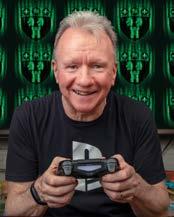
Beyond the school gates, RGS Partnerships work grows apace.
Digital Schoolhouse sessions have been running weekly, beamed into local primary school classrooms around the region, then welcoming students into school for in-person workshops. Ten schools have taken part to develop coding skills, and the RGS supported four secondary schools in entering the CyberFirst Girls’ competition. e computer industry’s previous gender imbalance is being kicked into touch by the girls’ appetite for the subject; our future workforce looks to be an exciting, diverse world of opportunities. e next generation of coders, so ware gurus and design engineers are well aware of their responsibilities in shaping this world; they’re also relishing their cyber super-powers along the way.
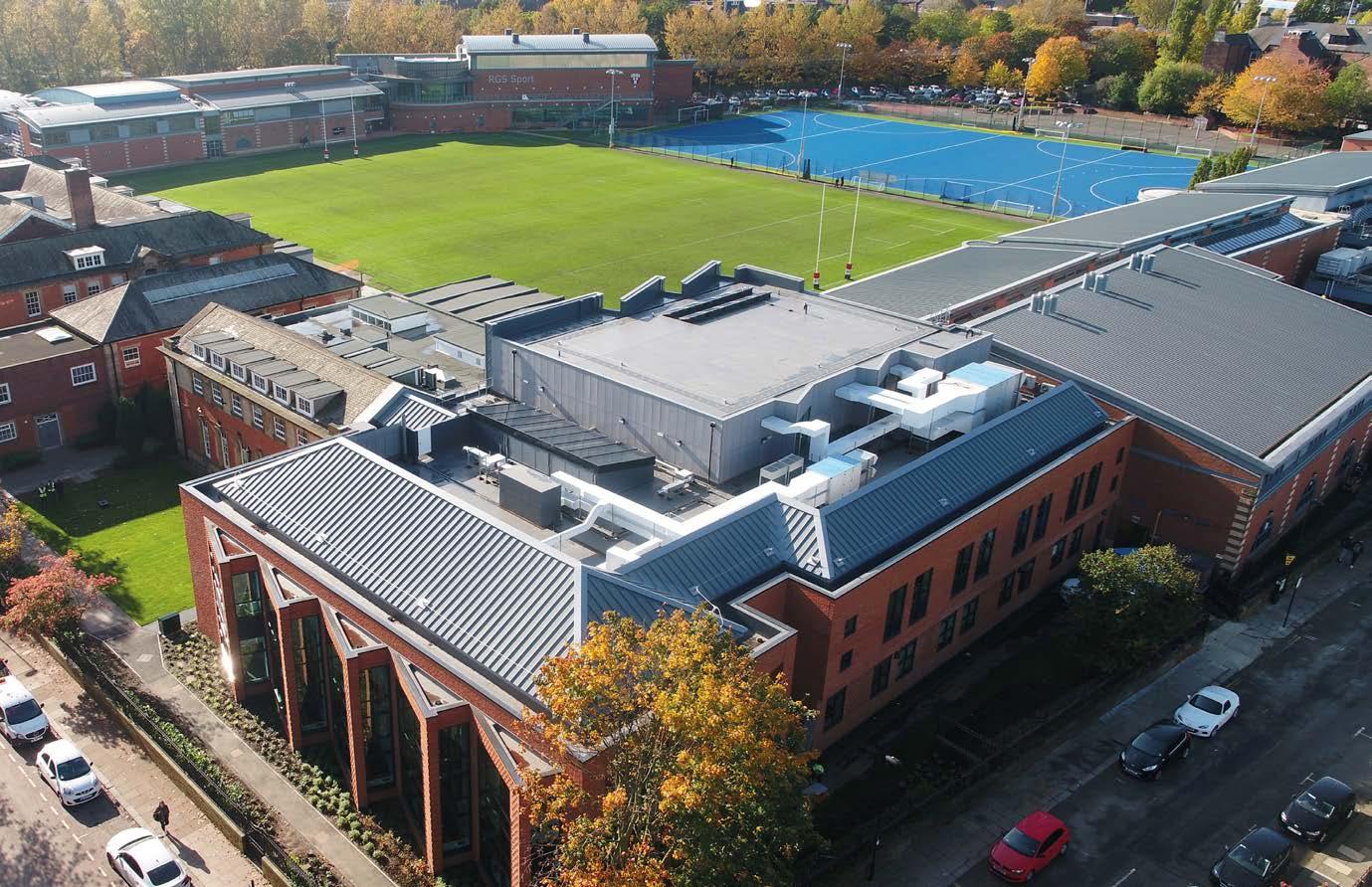



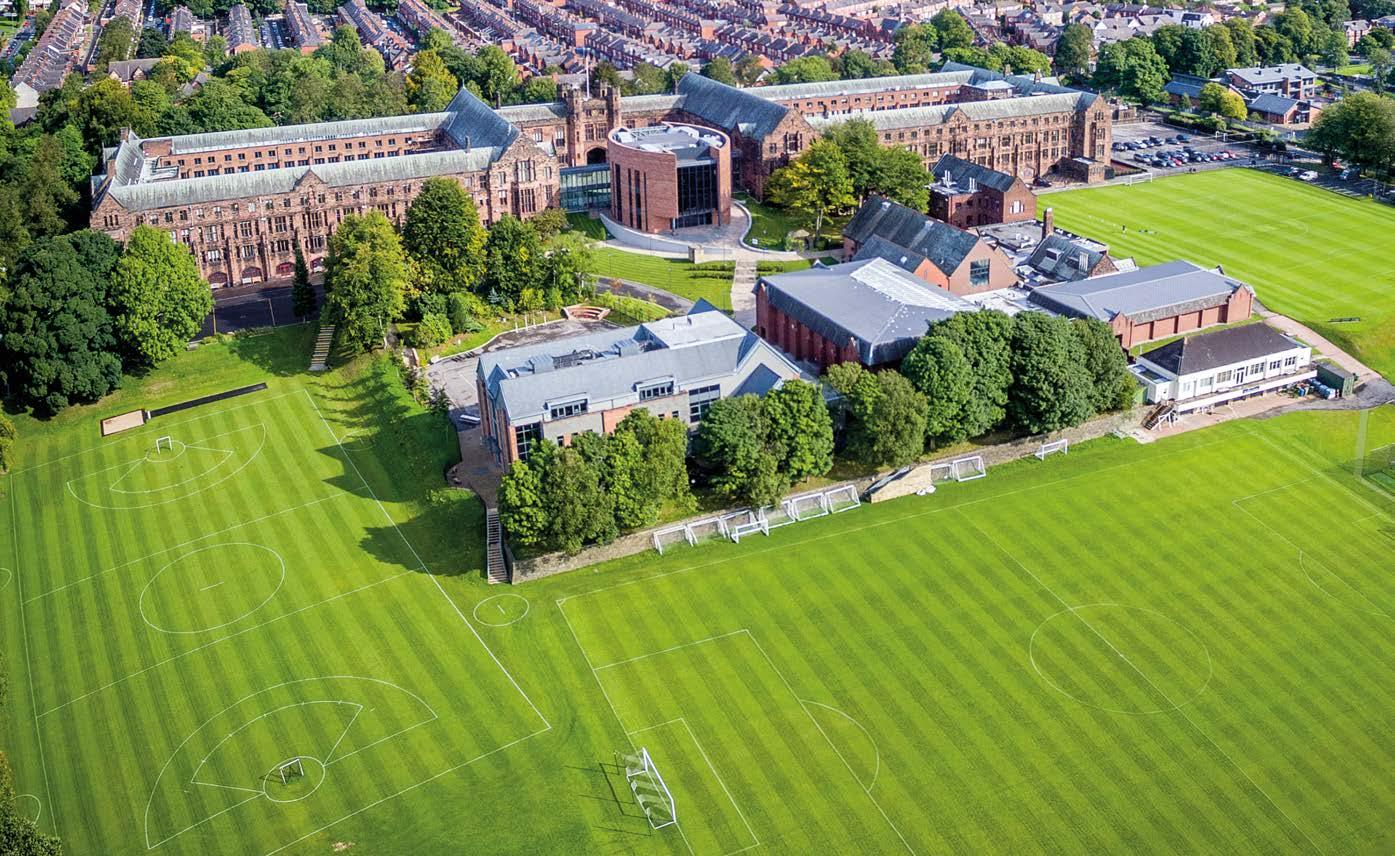
The false dichotomy between fee-paying and state schools is a modern and unhelpful divide. For nearly 80 years, both have been part of the educational landscape and, before that, the most common type of school over the centuries was one where some pupils paid fees and some were supported by the philanthropy of others. We’ve got caught up in a narrative of privilege and private provision, where too many people think their local independent school isn’t for them. Yet the real question parents should ask is whether the school is right for their child, and then explore how that might be made possible. For those who can’t a ord fees, the answer to this question is to research what bursary provision the school has to o er, and how to apply to access it.
In keeping with their tradition of charitable education and being as inclusive as possible for those who live in the local area, many independent schools have bursary provision and for some it funds a signi cant fraction of the pupils. is allows them to pay some or even all of the fees for your child to attend the school. e number of bursaries available and the systems for a particular school will di er, but there are some general pointers to share and every school will have the detail on its website.
In most cases, a bursary is a means-tested scholarship.
e ‘scholarship’ part means the rst hurdle to being eligible for a bursary will be to do well in the entrance process for that school. is is likely to involve some entrance tests but will also include an interview. Schools
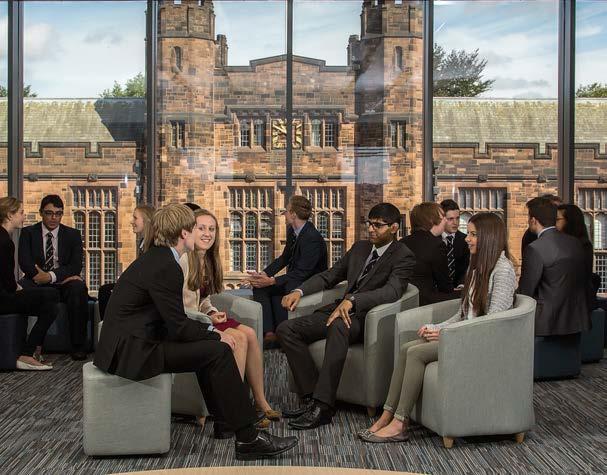
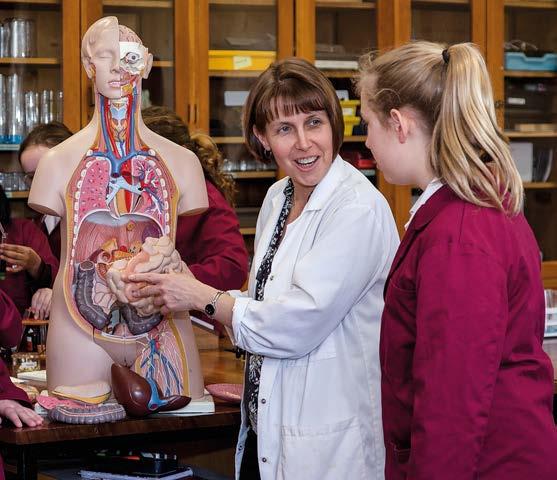


will be looking for potential, not the nished article because they’re about to educate your child – they don’t expect that to have been done already. e tests will be looking at aptitude and thinking skills, not prior knowledge. What matters is how well your child can learn, not what they have learned, and this is what schools will be looking for. If in doubt, have a go rather than rule yourself out because you think everyone else is better prepared. It’s worth your child studying using past test papers to see what it looks like, but it’s not a case of revising facts.
e interview will also probe potential and is likely to look for character traits: is your child curious? Do they have empathy with others? Can they commit and see things through? Schools know they’re interviewing young children and will ask questions in the right context. ere are no trick questions and the best advice is to speak and to be themselves; they just want to see that spark of a joy of learning and someone who will add to school life through their personality. ey’ll also be trying to select pupils who, when they join the adult world a er school, will give back and add real value to society through the education they have had.
Once eligible for a bursary, how much you get is usually means-tested on your income. Some will get all the fees paid and some will get part of them paid. ese assessments use information that will be readily available from tax forms, pay slips or bene t statements, nothing you’ll have to nd specially. It may be the school does this assessment itself or it might use an external agency. It’s likely ▲
IN KEEPING WITH THEIR TRADITION OF CHARITABLE EDUCATION and being as inclusive as possible for those who live in the local area, MANY INDEPENDENT SCHOOLS HAVE BURSARY PROVISION AND FOR SOME IT FUNDS A SIGNIFICANT FRACTION OF THE PUPILS
This map illustrates the location of some of the leading independent schools in this region. A directory of schools, listed by area, follows this page.

West Buckland, Barnstaple, Devon EX32 0SX
Head Teacher: Mr Phillip Stapleton
Admissions: Mrs Jude Omar – admissions@westbuckland.com enquiries@westbuckland.com 01598 760000
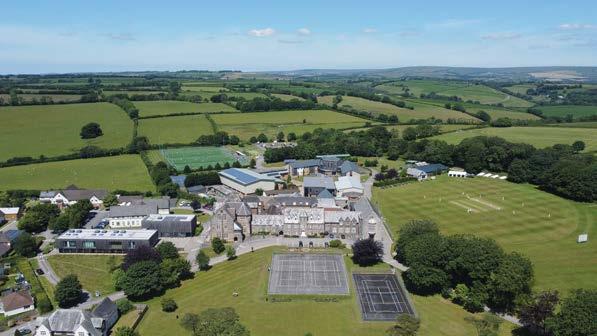



GENDER/AGES: Boys and girls, 3-18 years
TOTAL PUPILS: 650, boys 325, girls 325
TYPE: Day, Weekly, Full Boarding

FEES: Nursery day from £2,860, Pre-Prep day from £2,995, Prep day from £3,600, Senior day from £5,786, Weekly from £7,399, Full Boarding from £11,088 per term
ENTRANCE PROCEDURE: CAT 4 assessment (arranged by the school).
School Philosophy: To produce the whole child, not just to focus on their academic achievements, but to nurture their individual talents.